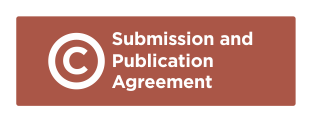The Role of Carbon Pricing in Accelerating Energy Transition
A Case Study of Indonesia's Industrial Processes and Product Use (IPPU) Sector
Keywords:
carbon pricing, emissions trading scheme, energy transition, industrial competitiveness, renewable energy investmentAbstract
Carbon pricing serves as an effective economic instrument to mitigate greenhouse gas emissions while fostering investment in renewable energy by reducing dependence on fossil fuels. This study examines the development of carbon pricing policies to accelerate the energy transition, focusing on the Industrial Processes and Product Use (IPPU) sector. The proposed scheme is based on the Emissions Trading Scheme (ETS), tailored to local regulations and industrial capacities. This research employs a systematic review and content analysis of successfully implemented carbon pricing policies in various countries. While carbon pricing has been applied in the energy and forestry sectors, existing studies often lack specificity regarding emission thresholds or quantified carbon values across different emission sources. The IPPU sector, despite being a significant emitter, remains underrepresented in current policy design and academic literature. The findings indicate that carbon commercialisation supports renewable energy transition projects and increases investment in the electricity sector. This study proposes a carbon credit scheme tailored to the Indonesian wood industry (referred to as Industry X), which has begun integrating biomass and bioenergy to compensate for fossil-based emissions. The novelty of this study lies in its targeted focus on the IPPU sector and the practical application of a carbon pricing framework for industrial decarbonisation. The results suggest that integrating carbon pricing with fiscal incentives and energy regulations enhances industrial competitiveness in transitioning to clean energy. This study provides policy recommendations to improve carbon pricing mechanisms, supporting renewable energy investment and sustainable industrial transformation.
Downloads
References
Adu, D. T., & Denkyirah, E. K. (2024). Estimating the causal impact of british columbia carbon tax: a synthetic control approach. American Review of Canadian Studies, 54(3), 260–280. https://doi.org/10.1080/02722011.2024.2390329
Alwaaritsy, N., & Romadan, A. (2025). Potential and challenges of biofuels from keruing (dipterocarpus spp.) To support sustainable fuel transition in the transportation sector. Jurnal Ilmu Pertanian Indonesia, 30(2), 430–440. https://doi.org/10.18343/jipi.30.2.430
Ari, A., Arregui, N., Black, S., Celasun, O., Lakova, D., Mineshima, A., Mylonas, V., Parry, I., Teodoru, L., & Zhunussova, K. (2022). Surging energy prices in Europe in the aftermath of the war: how to support the vulnerable and speed up the transition away from fossil fuels.
Barbier, E. B. (2023). Towards a more inclusive g7 climate club. https://ssrn.com/abstract=4695495
Berthe, A., Kubursi, A., Arain, M. A., & Janes, A. (2023). The comparative analysis of carbon pricing policies on canadian northwest territories’ economy under different climate change scenarios. Energies, 16(22), 7471. https://doi.org/10.3390/en16227471
Best, R., & Burke, P. J. (2020). Energy mix persistence and the effect of carbon pricing. Australian Journal of Agricultural and Resource Economics, 64(3), 555–574. https://doi.org/10.1111/1467-8489.12370
Carrera-Rivera, A., Ochoa, W., Larrinaga, F., & Lasa, G. (2022). How-to conduct a systematic literature review: A quick guide for computer science research. MethodsX, 9, 101895. https://doi.org/10.1016/j.mex.2022.101895
Delgado-Téllez, M., Quintana, J., & Daniel Santabárbara, D. S. (2025). Carbon pricing, border adjustment and renewable energy investment: a network approach (Documentos de Trabajo). Banco de España. https://doi.org/10.53479/38923
Digitemie, W. N., & Ekemezie, I. O. (2024). Assessing the role of carbon pricing in global climate change mitigation strategies. Magna Scientia Advanced Research and Reviews, 10(2), 022–031. https://doi.org/10.30574/msarr.2024.10.2.0040
Ding, D. (2022). The impacts of carbon pricing on the electricity market in Japan. Humanities and Social Sciences Communications, 9(1). https://doi.org/10.1057/s41599-022-01360-9
Dominioni, G., & Petit, C. A. (2025). Carbon pricing for international shipping and border carbon adjustment mechanisms: A case for regulatory cooperation. European Journal of Risk Regulation, 16(1), 133–148. https://doi.org/10.1017/err.2024.59
Foggia, G. Di, & Beccarello, M. (2022). Opportunity cost of carbon pricing and white certificate programs: A business case. Journal of Sustainable Development, 15(5), 150. https://doi.org/10.5539/jsd.v15n5p150
Gangodawilage, D. (2024). Navigating carbon pricing: The economic and strategic implications for industrial enterprises. Sinergi International Journal of Accounting & Taxation, 2(1), 45–58.
Heryan, A., & Sudrajad, O. Y. (2024). Financial impact analysis of carbon pricing on geothermal power plant project investment at PT PLN (Persero). International Journal of Current Science Research and Review, 07(08). https://doi.org/10.47191/ijcsrr/V7-i8-67
Hieu, V. M., & Hai, N. T. (2023). The role of environmental, social, and governance responsibilities and economic development on achieving the SDGs: evidence from BRICS countries. Economic Research-Ekonomska Istraživanja, 36(1), 1338–1360. https://doi.org/10.1080/1331677X.2022.2086598
Hu, Z. (2024). Carbon risk assessment in investing decision-making: the role of carbon pricing policies. Advances in Economics, Management and Political Sciences, 67(1), 94–101. https://doi.org/10.54254/2754-1169/67/20241270
Hughes, L., & Landry, S. (2024). The pushback against canada’s carbon pricing system: A case study of two Canadian provinces, Saskatchewan and Nova Scotia. Energies, 17(22). https://doi.org/10.3390/en17225802
Kafeel, K., Zhou, J., Phetkhammai, M., Heyan, L., & Khan, S. (2024). Green innovation and environmental quality in OECD countries: the mediating role of renewable energy and carbon taxes. Environmental Science and Pollution Research International, 31(2), 2214–2227. https://doi.org/10.1007/s11356-023-31111-5
KLHK. (2023). Peta Jalan Perdagangan Karbon. Direktorat Jenderal Pengelolaan Hutan Lestari Kementerian Lingkungan Hidup dan Kehutanan.(KLHK).
Koh, J., Johari, S., Shuib, A., Matthew, N. K., & Siow, M. L. (2021). Impacts of carbon pricing on developing economies. International Journal of Energy Economics and Policy, 11(4), 298–311. https://doi.org/10.32479/ijeep.11201
Kwilinski, A., Dobrovolska, O., Wo?owiec, T., Cwynar, W., Didenko, I., Artyukhov, A., & Dluhopolskyi, O. (2024). Carbon dioxide, nitrous oxide, and methane: What types of greenhouse gases are most affected by green investments and renewable energy development? Energies, 17(4). https://doi.org/10.3390/en17040804
Liu, H. (2023). the carbon tax effect on British Columbia economy and carbon emission. BCP Business & Management, 40, 233–240. https://doi.org/10.54691/bcpbm.v40i.4387
Mavlutova, I., Spilbergs, A., Verdenhofs, A., Kuzmina, J., Arefjevs, I., & Natrins, A. (2023). The role of green finance in fostering the sustainability of the economy and renewable energy supply: recent issues and challenges. Energies, 16(23). https://doi.org/10.3390/en16237712
Munn, Z., Peters, M. D. J., Stern, C., Tufanaru, C., McArthur, A., & Aromataris, E. (2018). Systematic review or scoping review? Guidance for authors when choosing between a systematic or scoping review approach. BMC Medical Research Methodology, 18(1), 143. https://doi.org/10.1186/s12874-018-0611-x
Nam, E., & Jin, T. (2021). Mitigating carbon emissions by energy transition, energy efficiency, and electrification: Difference between regulation indicators and empirical data. Journal of Cleaner Production, 300, 126962. https://doi.org/10.1016/j.jclepro.2021.126962
Nurhayati, Y., Ifrani, Said, M. Y., & Yanova, M. H. (2024). Carbon pricing policy to support net zero emission: A comparative study of Indonesia, Finland and Sweden. Environmental Policy and Law, 54(1), 53–63. https://doi.org/10.3233/EPL-230047
Okedele, P. O., Aziza, O. R., Oduro, P., & Ishola, A. O. (2024). Carbon pricing mechanisms and their global efficacy in reducing emissions: Lessons from leading economies. Open Access Research Journal of Engineering and Technology, 7(2), 114–125. https://doi.org/10.53022/oarjet.2024.7.2.0064
Oreoluwa Onabowale. (2025). Energy policy and sustainable finance: Navigating the future of renewable energy and energy markets. World Journal of Advanced Research and Reviews, 25(1), 2235–2252. https://doi.org/10.30574/wjarr.2025.25.1.0319
Pan, J., Cross, J. L., Zou, X., & Zhang, B. (2024). To tax or to trade? A global review of carbon emissions reduction strategies. Energy Strategy Reviews, 55, 101508. https://doi.org/10.1016/j.esr.2024.101508
Peter Simpa, Nko Okina Solomon, Olubunmi Adeolu Adenekan, & Scholar Chinenye Obasi. (2024). Strategic implications of carbon pricing on global environmental sustainability and economic development: A conceptual framework. International Journal of Advanced Economics, 6(5), 139–172. https://doi.org/10.51594/ijae.v6i5.1134
Putri, R. L., Werastuti, D. N. S., Rustiarini, N. W., Sutoto, A., Wahyono, E., Wardono, B., Zulham, A., Lukas, A., Goenawan, R. D., Anita, S., Ardana, I. K., Normal, I. N., Daniel, M., Yuniarti, L., Supriadi, K., & Al Vayed, D. (2024). Assessing the role of carbon taxes in driving low-carbon transformations: A comparative analysis of implementation policies. International Journal of Sustainable Development and Planning, 19(3), 1171–1180. https://doi.org/10.18280/ijsdp.190335
PWC. (2023). Indonesia’s carbon pricing: Undertanding the basic regulatory framework.
Qin, L., Wang, Z., & Pan, A. (2023). How the implementation of internal carbon pricing impacts on carbon reduction: facilitating or hindering. Environmental Science and Pollution Research. https://doi.org/10.1007/s11356-023-30997-5
Ranteala, A. O., Firdaus, R. I., & Nur, M. I. (2024). Development of carbon pricing policies for creating a low-carbon economy: A systematic literature review using PRISMA. Jurnal Perpajakan Dan Keuangan Publik, 3(1), 20–28.
Rehan, M., Alvi, J., Naz, A., & Karaca, S. S. (2025). Economies in transition: carbon emissions and renewable energy in G7 and BRICS. International Journal of Energy Sector Management. https://doi.org/10.1108/IJESM-06-2024-0016
Rosenbloom, D., Markard, J., Geels, F. W., & Fuenfschilling, L. (2020). Why carbon pricing is not sufficient to mitigate climate change—and how “sustainability transition policy” can help. Proceedings of the National Academy of Sciences, 117(16), 8664–8668. https://doi.org/10.1073/pnas.2004093117
Samosir, Y. O., Widayatno, R. L., & Yanto, S. (2025). Implementation of CCUS technology in the development of steam power plants: challenges and opportunities in the era of energy transition. Formosa Journal of Science and Technology, 4(3), 925–934. https://doi.org/10.55927/fjst.v4i3.41
Savin, I., Drews, S., & van den Bergh, J. (2024). Carbon pricing - perceived strengths, weaknesses and knowledge gaps according to a global expert survey. Environmental Research Letters, 19(2). https://doi.org/10.1088/1748-9326/ad1c1c
Shu, T., Peng, Z., Chen, S., Wang, S., Lai, K., & Yang, H. (2017). Government subsidy for remanufacturing or carbon tax rebate: Which is better for firms and a low-carbon economy. Sustainability, 9(1), 156. https://doi.org/10.3390/su9010156
Song, M., Wang, Y., & Long, Y. (2022). Investment and production strategies of renewable energy power under the quota and green power certificate system. Energies, 15(11). https://doi.org/10.3390/en15114110
Sugiyono. (2019). Metodelogi penelitian kuantitatif dan kualitatif dan R&D. Alfabeta.
Thisted, E. V., & Thisted, R. V. (2020). The diffusion of carbon taxes and emission trading schemes: the emerging norm of carbon pricing. Environmental Politics, 29(5), 804–824. https://doi.org/10.1080/09644016.2019.1661155
Vormedal, I., Gulbrandsen, L. H., & Skjærseth, J. B. (2020). Big oil and climate regulation: Business as usual or a changing business? Global Environmental Politics, 20(4), 143–165. https://doi.org/10.1162/glep_a_00565
Wang, Y., Cui, X., Bu, W., & Li, L. (2022). How to design renewable energy support policies with imperfect carbon pricing? Frontiers in Environmental Science, 10. https://doi.org/10.3389/fenvs.2022.958979
Wei, Z., Wang, H., Fang, T., Han, Z., & Wang, P. (2024). Low-carbon energy transition multi-agent network evolutionary under carbon trading scheme. PLoS ONE, 19(4 April). https://doi.org/10.1371/journal.pone.0300202
Wilkowska, W., Frank, M., Kluge, J., & Ziefle, M. (2024). How do we move towards a greener and socially equitable future? Identifying the trade-offs of accepted co2 pricing revenues in Germany. Sustainability, 16(8), 3378. https://doi.org/10.3390/su16083378
Wolfram, P., Weber, S., Gillingham, K., & Hertwich, E. G. (2021). Pricing indirect emissions accelerates low—carbon transition of US light vehicle sector. Nature Communications, 12(1). https://doi.org/10.1038/s41467-021-27247-y
Xu, L., & Yang, J. (2024). Carbon pricing policies and renewable energy development: Analysis based on cross-country panel data. Journal of Environmental Management, 366, 121784. https://doi.org/10.1016/j.jenvman.2024.121784
Yanfei, L., Hejie, Z., Bai, E., & Long, L. (2023). From a long-term dynamic perspective: how should internal carbon pricing be implemented? Frontiers in Energy Research, 11. https://doi.org/10.3389/fenrg.2023.1304272
Yang, F., & Li, J. (2024). A Review of Renewable Energy Investment in Belt and Road Initiative Countries: A Bibliometric Analysis Perspective. In Energies, 17(19). https://doi.org/10.3390/en17194900
Downloads
Published
How to Cite
Issue
Section
License
Copyright (c) 2025 Nurin Alwaaritsy, Arista Romadani

This work is licensed under a Creative Commons Attribution-NonCommercial 4.0 International License.













